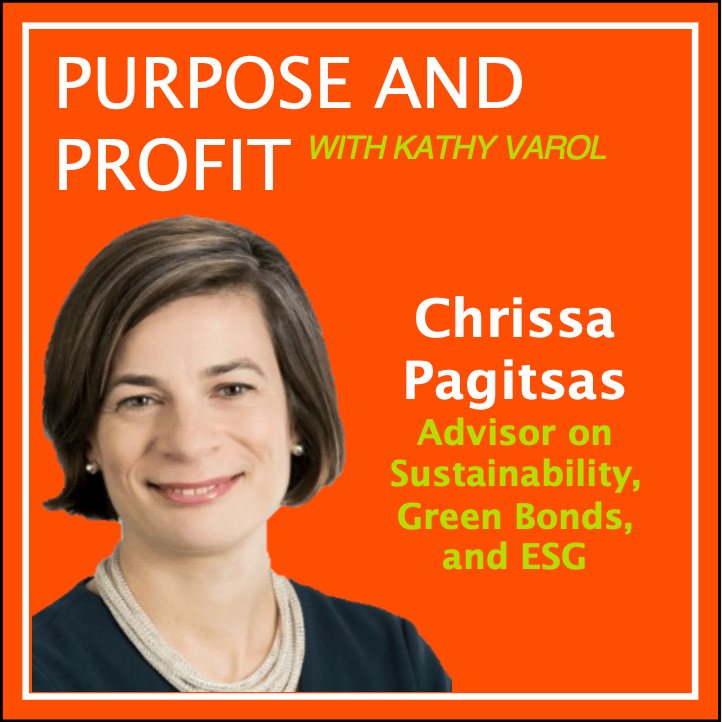Show Notes:
Chrissa Pagitsas is a senior advisor on sustainability, green bonds and ESG. She spent most of her career at Fannie Mae, where she created their ESG strategy and launched their Green Financing Business which has gone on to issue over $87 billion in green bonds. Chrissa also led a partnership with the EPA to develop the ENERGY STAR scoring and certification program for existing multifamily buildings.
Chrissa has served on the US Green Building Council’s board as Secretary-Treasurer and has advised international and domestic standard setters, governing bodies and key industry associations including NASDAQ, Structured Finance Association, the International Capital Markets Association, and the Urban Land Institute.
Chrissa is currently writing a book about the Chief Sustainability Officers at Fortune 500 companies and globally recognized brands such as IKEA, Coca-Cola and Netflix. The book will be out in early 2022.
You can connect with Chrissa on LinkedIn.
In this episode we cover:
- What a green bond is, why it’s important, and how it’s evolving
- The rise of the Chief Sustainability Officer
- The benefits of having a business integrated ESG strategy
- How employees, consumers and shareholders can support change in the sustainability, diversity & inclusion, and social impact space
Key Takeaways:
- The importance of third party verifications for transparency, adoption, trust and consistency. When companies have a third party certification, it shows they have met the same standards that all companies with that certification are held to.
- ESG reporting isn’t standardized. There are many different frameworks and multiple rating systems that can be used. Unfortunately these systems don’t align. That means that as companies start creating their ESG strategies and reporting their progress, transparency is incredibly important.
- The elevation of ESG and Sustainability representation to the c-suite will continue to increase. For ESG and Sustainability strategies to be effective, they need to be business integrated, which makes that c-suite representation crucial. It’s through business integration that impact is maximized, and the benefits to the bottom line, employee engagement, and consumer loyalty are unlocked.
References:
- Fannie Mae
- Morningstar explainer on green bonds
- U.S. Green Building Council page on LEED certification
- International Living Future Institute page on Zero Energy certification
- ESG: From Zero to Strategy, Process and Reporting
- ENERGY STAR
- Frank O’Brien-Bernini, Chief Sustainability Officer, Owens Corning
- Ezgi Barcenas, Chief Sustainability Officer, Anheuser-Busch InBev

